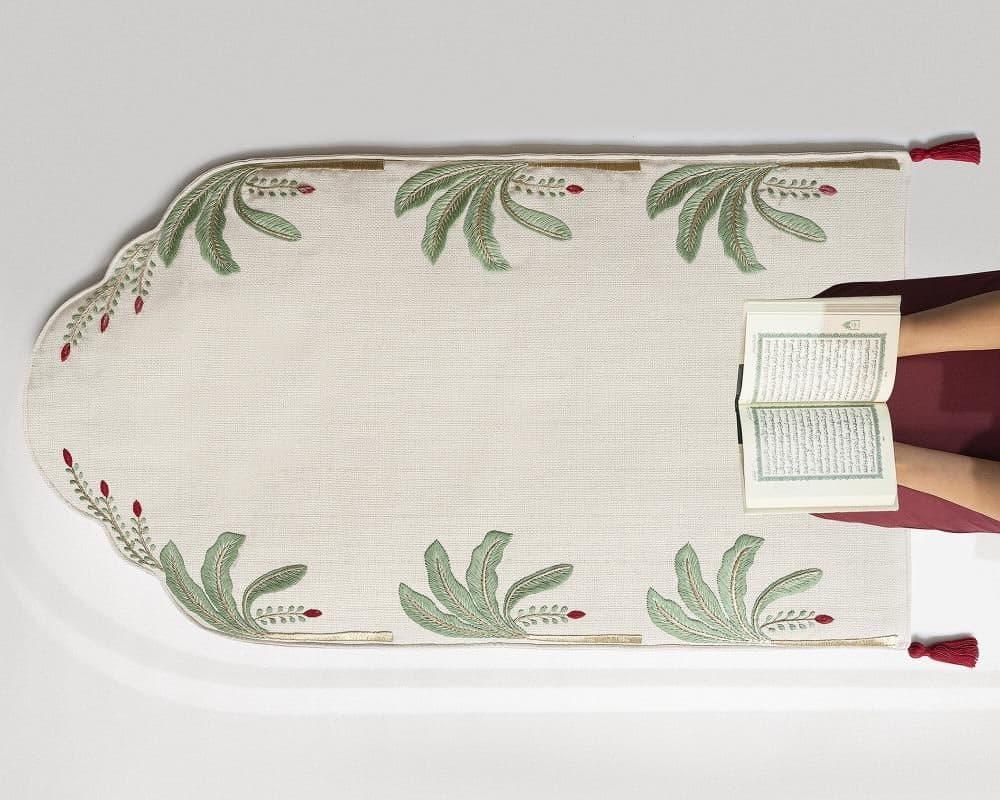Spoiler alert: Yes, gifts are given during Ramadan. And no, it’s not just about dates and lanterns (although those are lovely, too).

Image & Prayer Matt from Cocoon Concept
Ramadan is not typically associated with extravagant gift-giving throughout the month. Instead, it’s about meaningful connection, generosity, and spiritual reflection. However, giving during Ramadan—whether through acts of charity (Zakat), iftar invitations, or thoughtful gifts—is a beautiful way to honor the spirit of the season.
When Do People Typically Give Gifts?
During Ramadan (the month itself): Gifts during the month are usually modest, thoughtful, and practical. Think: a box of premium dates to break the fast, personalized prayer journal, cozy prayer mat or elegant incense set and a children’s Ramadan storybook or activity kit.
Eid al-Fitr (the celebration at the end of Ramadan): Now this is when gift-giving really steps into the spotlight. Eid is a joyous occasion. Gifts are exchanged between family, friends, neighbors, and coworkers, and they can range from cash (called “Eidi”) to toys, clothes, perfumes, sweets, and more.
Who Gives Gifts—and to Whom?
Ramadan and Eid gifting is beautifully inclusive. Here’s how it usually flows:
Parents → Children: Often money, sweets, or new clothes.
Guests → Hosts: If you’re invited to iftar, bringing a small gift (like flowers, dates, or a dessert) is a thoughtful gesture.
Friends, Colleagues & Neighbors: A Ramadan or Eid gift is a lovely way to strengthen bonds—especially if you don’t see each other often.
Brands & Businesses → Clients or Employees: Companies often give Ramadan boxes or Eid hampers as a gesture of appreciation.




